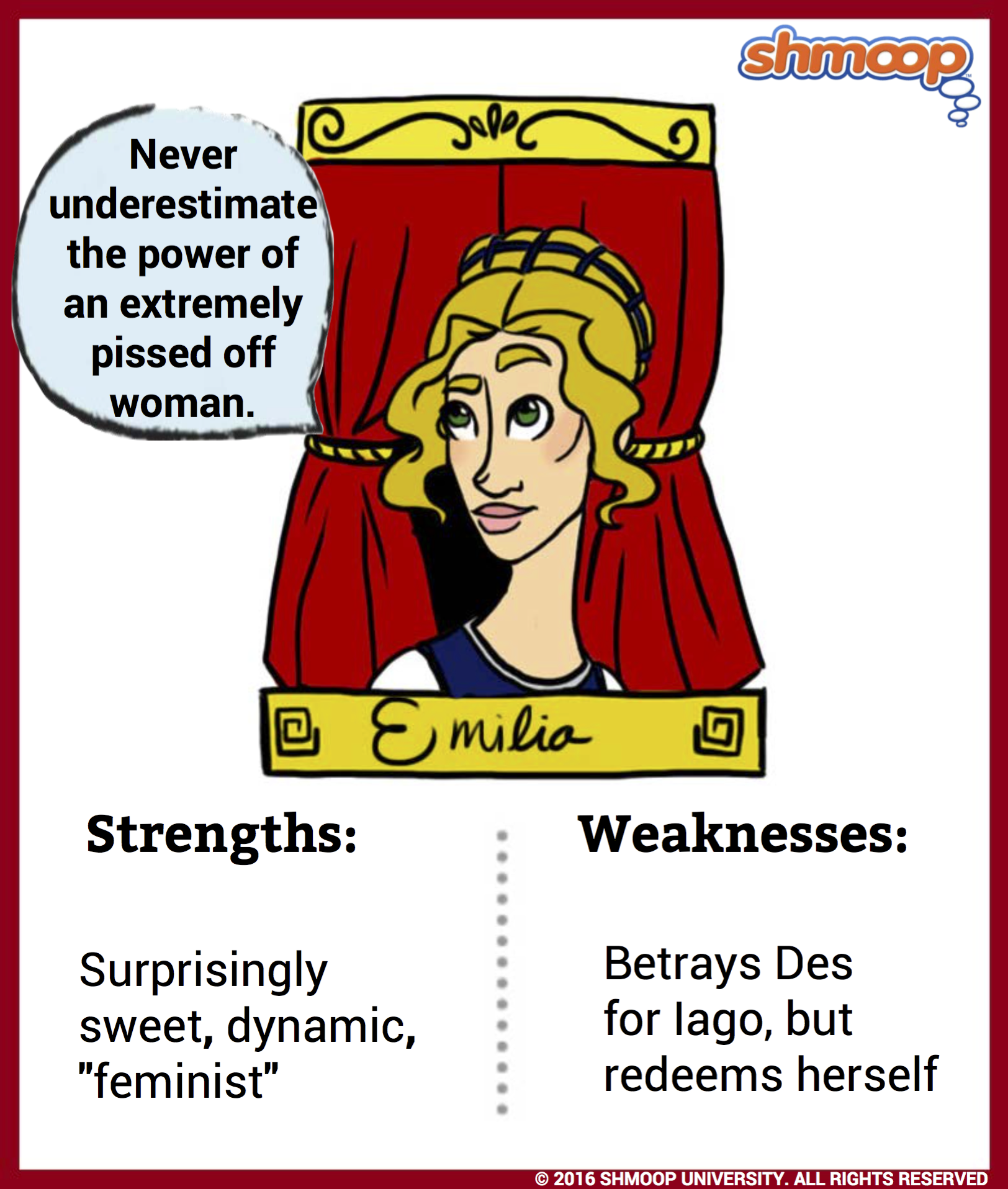

Later Emilia even lies to Desdemona, saying she doesn't know where it is it is clear she feels a "divided duty" in this matter between her friend and her husband. Iago is the one who drops the handkerchief in Cassio's chamber. Iago snatches it from her and all she can do is ask about what he'll do with it (III.iii.310-320). Emilia does not agree to steal the handkerchief for Iago. Throughout the play, Iago uses Emilia's close friendship with Desdemona to gain access to her and, in particular, asks her to steal Desdemona's handkerchief, which he subsequently drops in Cassio's house and later uses this as evidence to convince Othello that Cassio has been with Desdemona. She also states in the same scene that she would be willing to commit adultery for a sufficiently high price - this shows her cynical and worldly nature in sharp contrast to Desdemona, who seems almost unable to believe that any woman could contemplate such an act. Emilia is a comparatively minor character for much of the play however, she serves to provide a strong contrast to the romantic and obedient Desdemona, demonstrating that she is both intelligent and distinctly cynical, especially on matters relating to men and marriage - her speech to Desdemona listing the faults and flaws of the male sex in 4.3 is a good example of this (though she does admit that women also have "frailty, as men have").


 0 kommentar(er)
0 kommentar(er)
